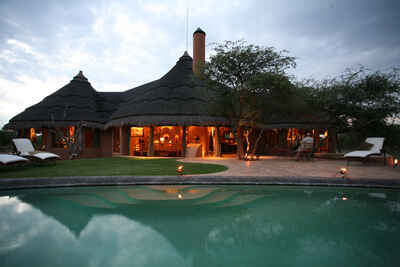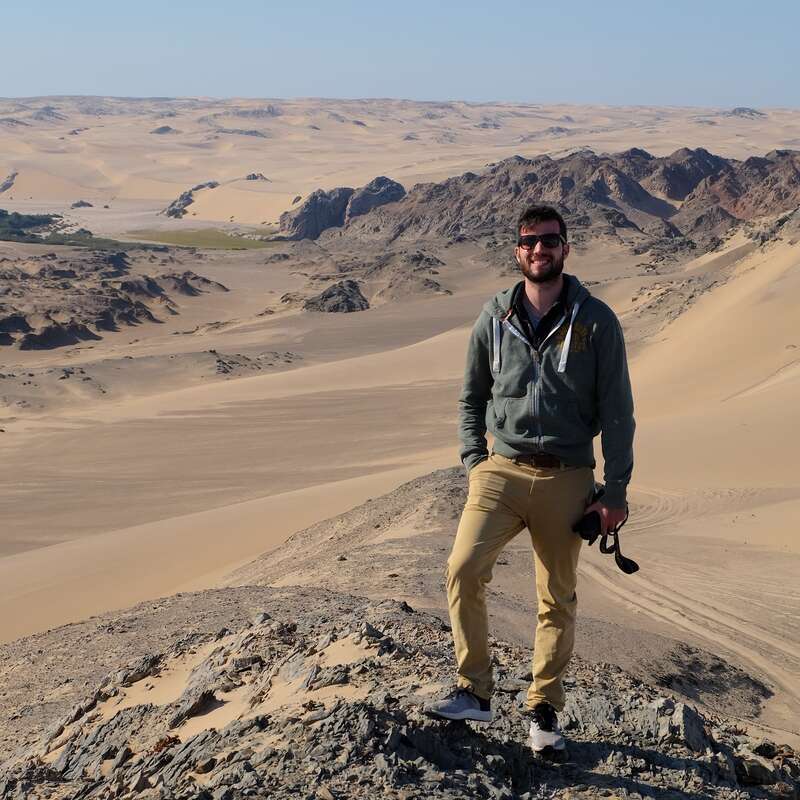About Okonjima Bush Suite
Almost hidden beneath a deeply thatched roof, Okonjima Bush Suite is the epitome of an exclusive safari hideaway.
Underpinning the sense of seclusion is the two-bedroom suite’s setting, overlooking its own waterhole on the vast Okonjma Nature Reserve, with its own private mokoro-shaped pool.
Comfort is the watchword here, the traditional structure enhanced by soft curves that impart a sense of relaxation. Leather-cushioned chairs sit in a sunken lounge surrounding a warming fireplace; bedrooms are cooled by air conditioning; en-suite bathrooms come with indoor and outdoor showers – and a bath with a view.
With a private chef, meals can be served when you like – either indoors or on the patio, keeping an eye out for wildlife. And if you can’t drag yourself away from the natural grandeur, queen-size beds can be wheeled out for a night under the stars.
Daytimes are filled with exploring the private reserve with the suite’s own guide. With the emphasis on predators, Okonjima is renowned for its leopard sightings, but there is far more to be seen, from giraffe and kudu to colourful birds aplenty.
Discover, too, the work of the AfriCat Foundation, head out on a night drive, or take yourself off on a self-guided walking trail. From this luxurious yet highly personal suite, the choice is yours.
Our view
Okonjima Bush Suite is a small, luxurious and very personal base from which to explore the Okonjima Reserve, which offers superb opportunities to learn about Namibia's carnivores – and see them at much closer quarters than is normally possible. The ultimate luxury, though, lies in the privacy and flexibility made possible by a private chef, a private guide and a host dedicated to meeting the needs of guests here.
Accommodation
2 rooms
Children
Best for 8+
Open
All year
Activities

4WD Safari

Birdwatching

Cultural excursion

Mountain biking

Night drive

Private activities

Self-guided walking
Traveller reviews of Okonjima Bush Suite
7 real, un-edited reviews from Expert Africa's travellers.
Arrived 12 Oct 2023, 1 nights
"Okonjima Bush Suite review"
Overall rating: Excellent
Arrived 9 Aug 2019, 1 nights
"Pure self-indulgent luxury!"
Overall rating: Excellent
Arrived 21 May 2019, 1 nights
"Okonjima Plains Camp - we were upgraded here"
Overall rating: Excellent
Arrived 24 Sep 2014, 3 nights
"Cheetah encounter at Okonjima"
Overall rating: Excellent
Arrived 7 Jul 2014, 2 nights
"Lovely accommodation at Okonjima Bush Suite"
Overall rating: Excellent
Arrived 19 Jun 2012, 2 nights
"Okonjima Bush Suite review"
Overall rating: Excellent
Arrived 11 Oct 2010, 2 nights
"Okonjima Suite review"
Overall rating: Excellent
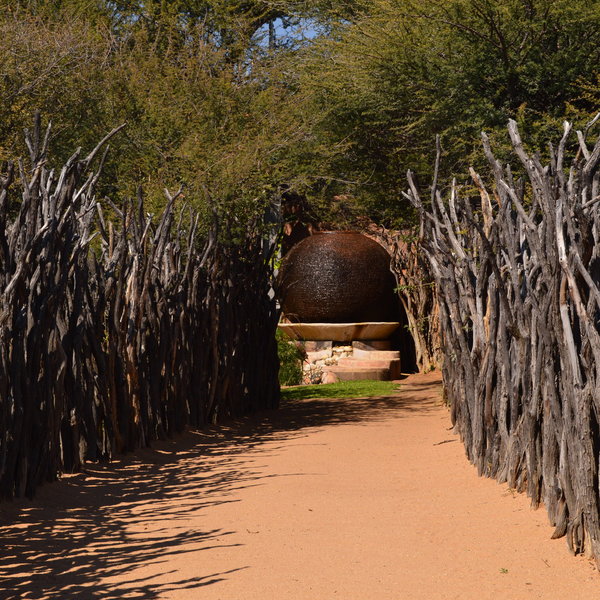
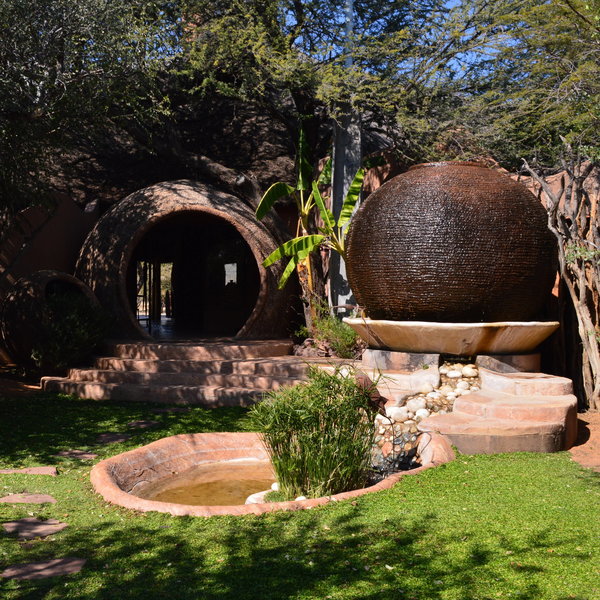
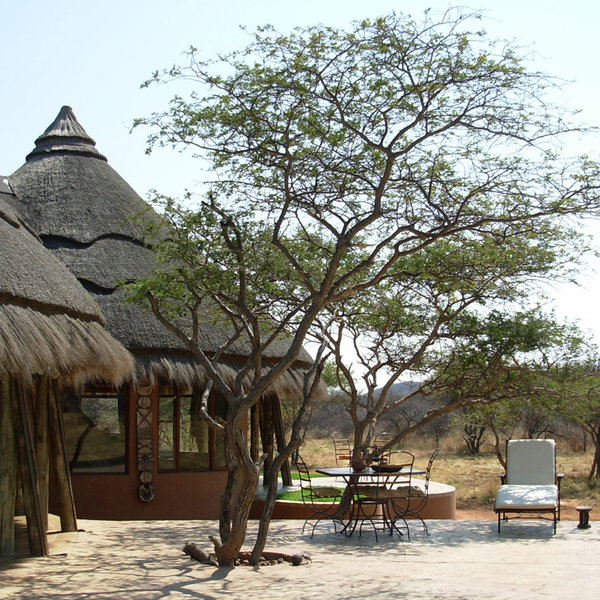
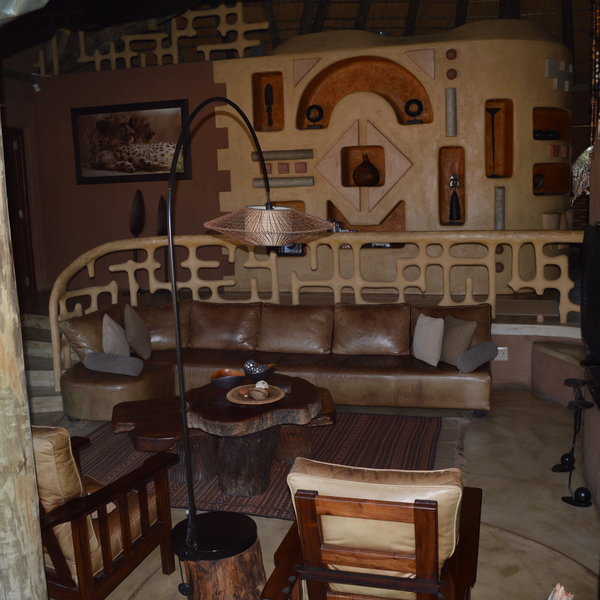
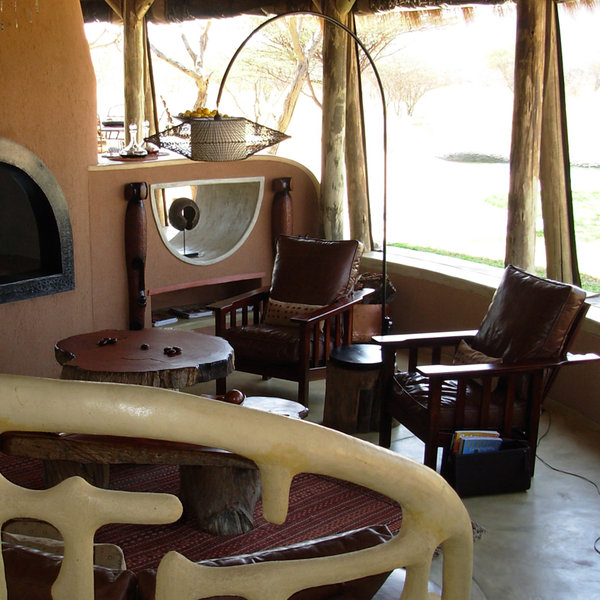
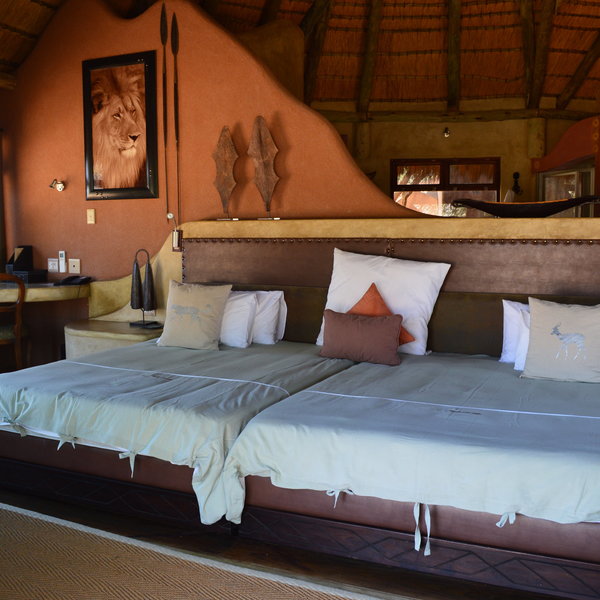
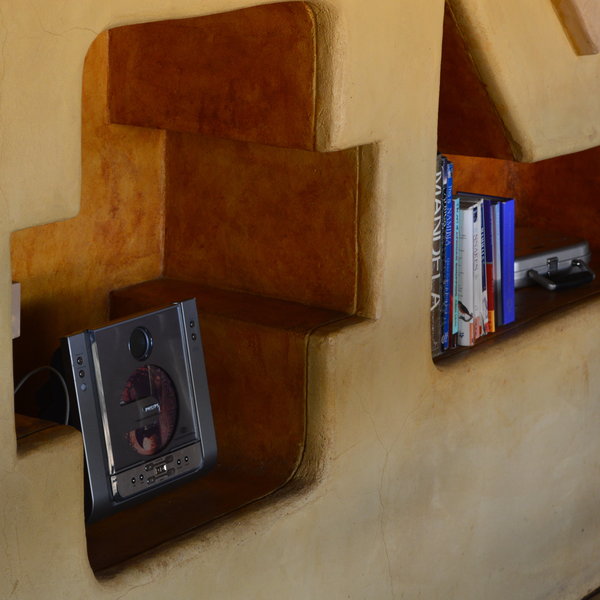
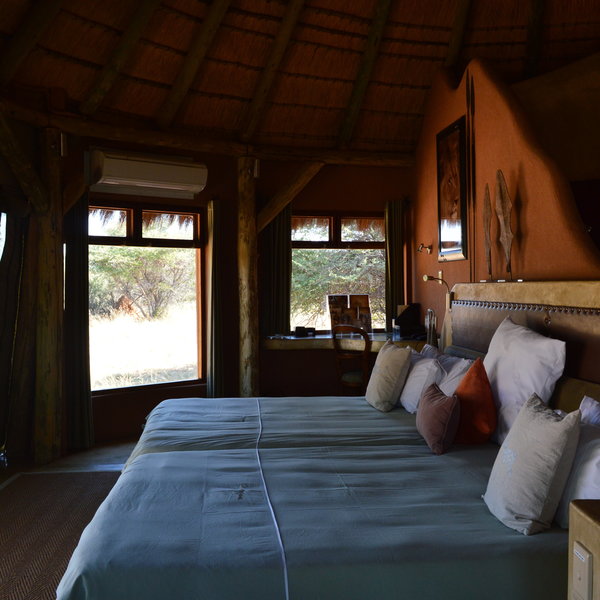
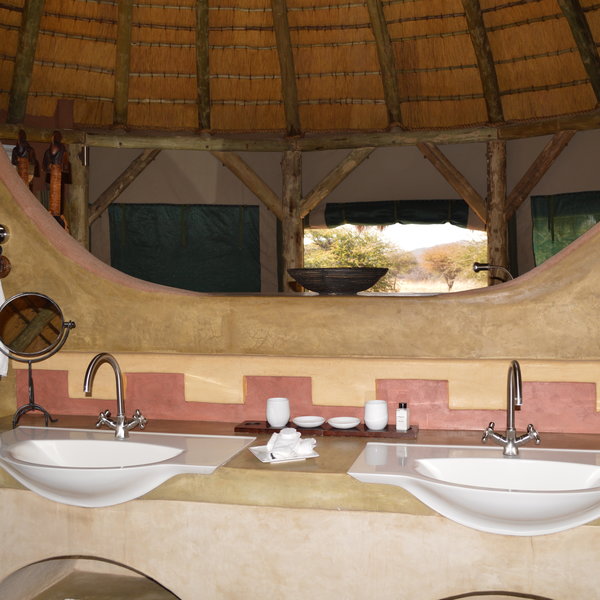
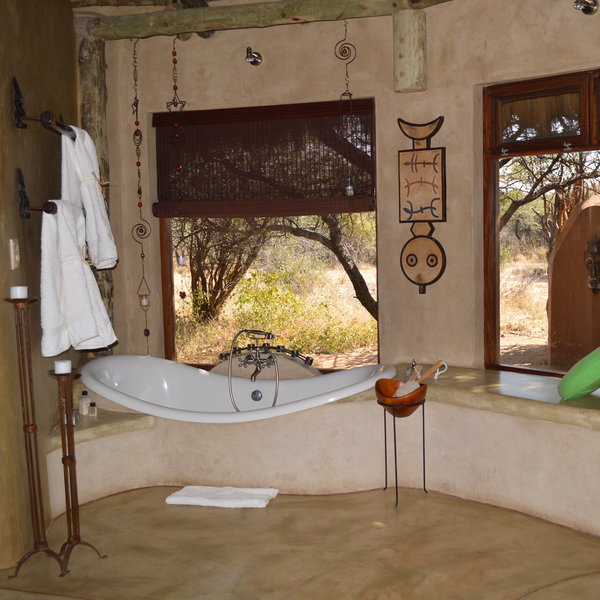
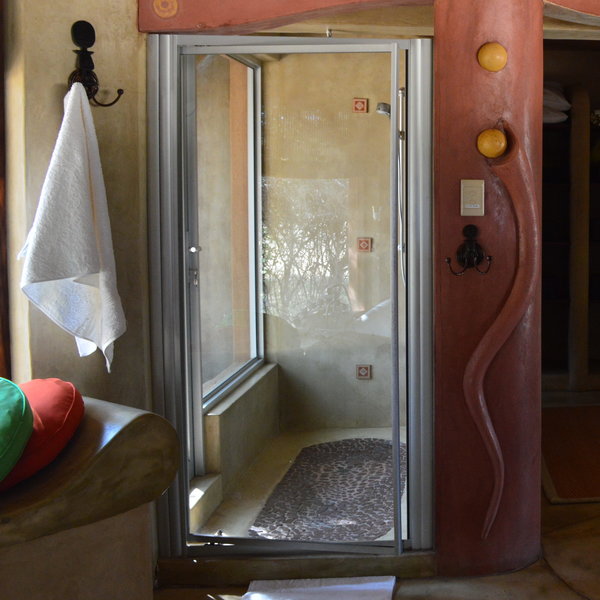
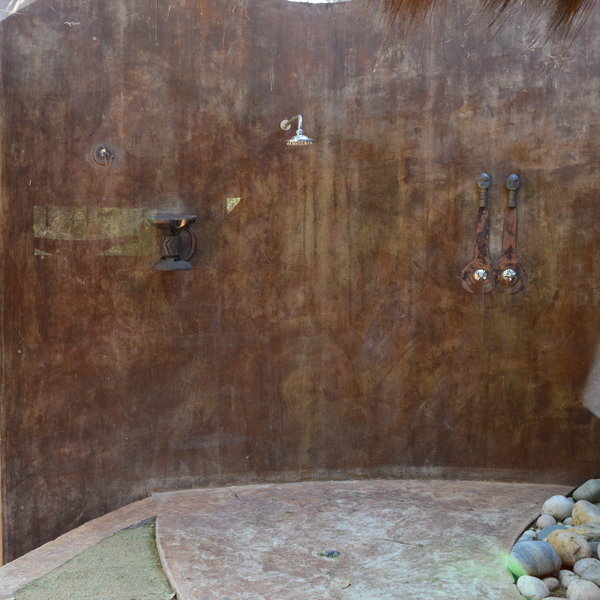
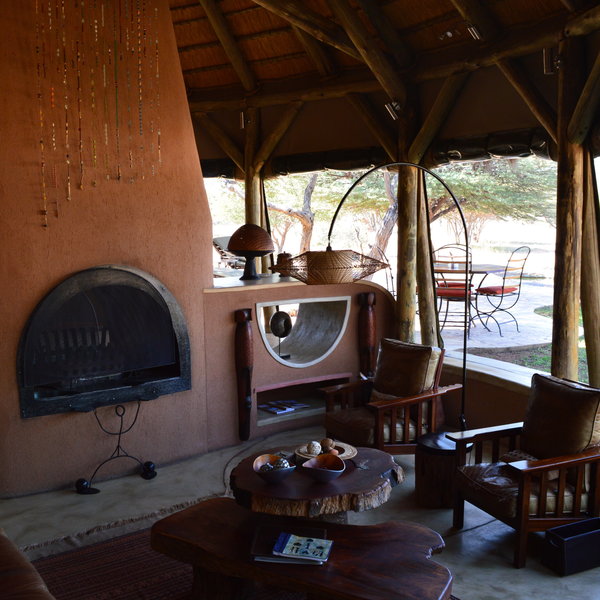
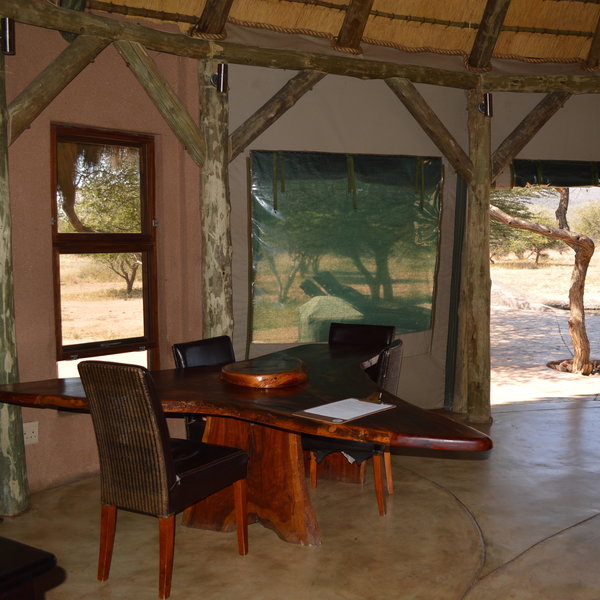
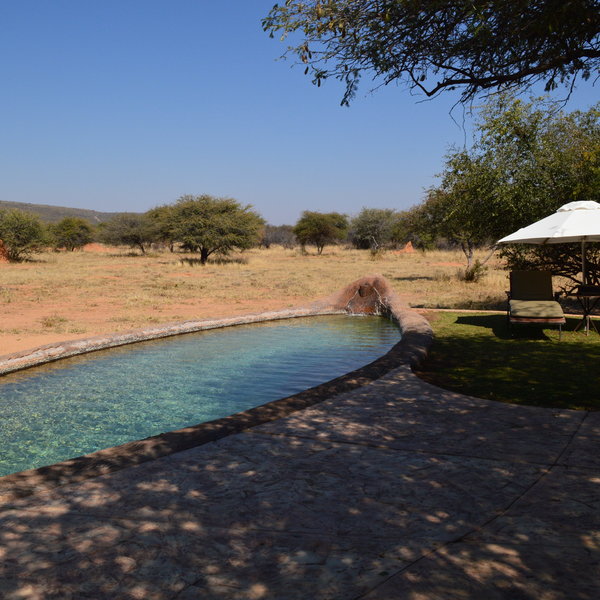
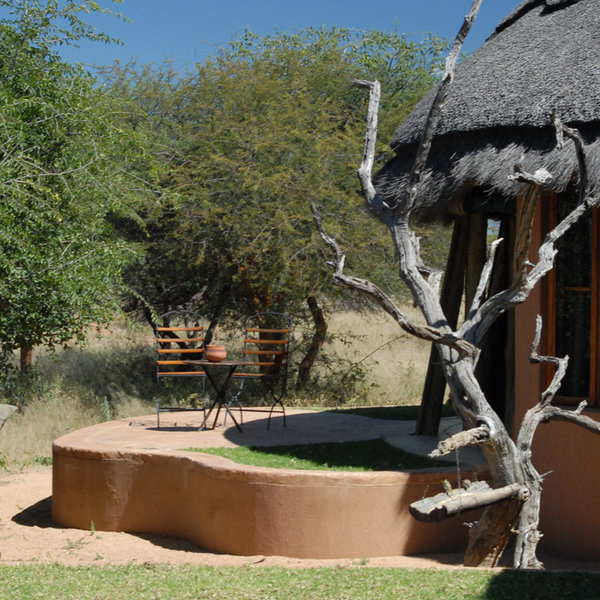
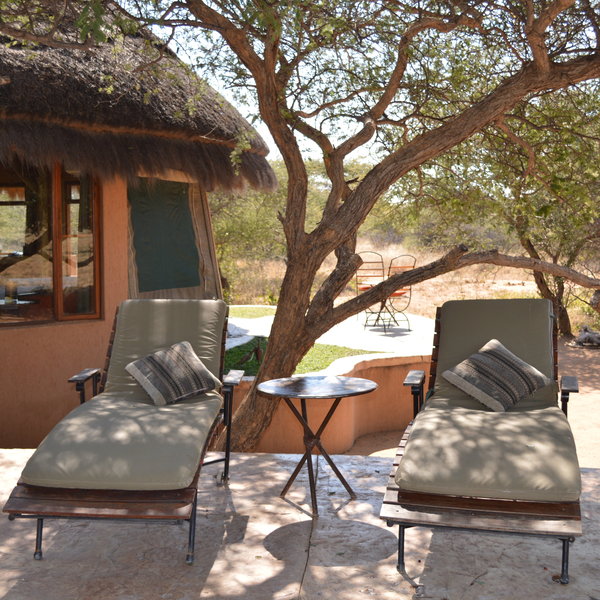
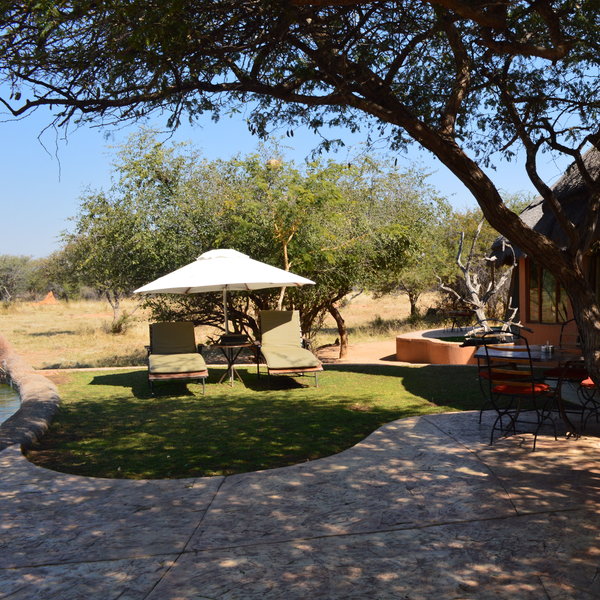
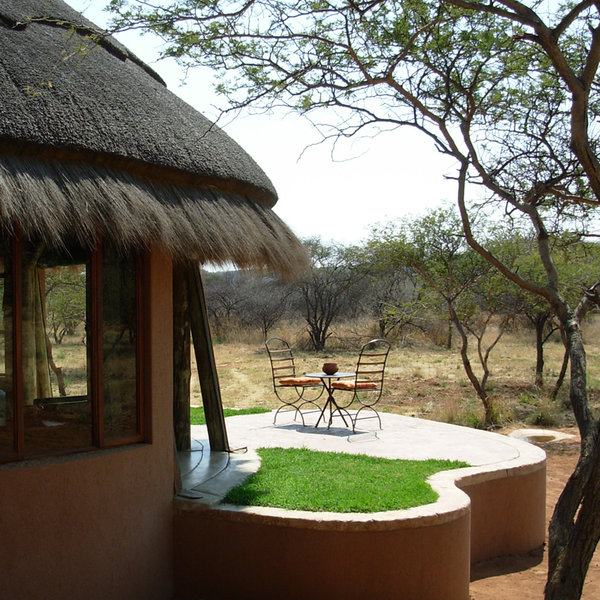
Expert Africa's gallery
When we travel we take lots of photos ourselves to give you a real and un-edited view of the safaris. See our 33 pictures and 1 videos of Okonjima Bush Suite to get the candid view.
View galleryOkonjima Bush Suite: Our full report
The exclusive Okonjima Bush Suite is tucked away on the 220km² Okonjima Nature Reserve, just south of Otjiwarongo.
From this private camp, with just two bedrooms, guests have the opportunity to learn about Namibia's carnivores through the AfriCat Foundation, a non-profit organisation set up to conserve and protect Namibia's threatened predators, particularly leopard. The opportunities for viewing them from close quarters are excellent.
The smallest of the properties on the reserve, the Bush Suite is usually booked exclusively for one family or two couples travelling together. It lies about 500m from its nearest sibling, Okonjima Bush Camp. Other camps at Okonjima include the equally exclusive Okonjima Villa, and the larger Okonjima Plains Camp.
At the heart of the Bush Suite is a spacious living area, whose cosy sunken lounge has comfortable leather couches, a fireplace, and coffee tables hewn from tree trunks. There's an indoor dining area, too, though you can take your meals outside on the extended deck under the cover of natural shade or, when it's a bit cooler, in front of a log-burning fire with views across the plains. A 13m swimming pool, shaped like a mokoro, is an attractive bonus.
Set either side of the living area are two air-conditioned en-suite bedrooms, each with two queen-size beds and beautiful wildlife photographs, taken at Okonjima, adorning the walls. For a night under the stars, the beds from one of the rooms can be wheeled out onto the terrace. Both bathrooms feature two sinks, indoor and outdoor showers, a bidet and a bath with a view of the bush.
Okonjima Bush Suite comes with a personal host or hostess, a private chef to prepare your meals – though guests staying here also have the use of a modern kitchenette should they wish to prepare a snack between mealtimes – and a private guide. A stay at the Bush Suite means that you have some flexibility with mealtimes, meal choices and the pace of your activities.
As with the other properties on this reserve, staying one or two nights at the Bush Suite will normally provide excellent opportunities to see big cats at close range, as well as being able to learn more about these fascinating animals.
On privately guided activities you have the chance to radio-track leopard from game-viewing vehicles. Although sightings can never be guaranteed, we have always been lucky on our visits to Okonjima. On our last visit to the reserve in May 2022 we spent around half an hour with a young female leopard hunting before she slipped away into the bush.
In addition to leopard tracking, other activities include:
- Nature drives: There are over 40 mammal species on the reserve and many more birds. Guests are likely to see a range of these while out tracking big cats, but if you have longer on the reserve you can choose to go out without using tracking telemetry and see what you can find.
- Pangolin tracking: Departing after dark, guests have the opportunity to track tagged ground pangolin, following at a discreet distance on foot. Good footwear and a flashlight are essential. Pangolins spend much of their time underground so even with tracked individuals sightings are not guaranteed. Note that this activity has limited availability and is weather dependent.
- Rhino tracking: Okonjima is home to a small population of southern white rhino that are constantly monitored by the reserve’s anti-poaching team. On this activity guests can often approach the rhino on foot.
- AfriCat Carnivore Care Centre: Visit some of the reserve’s welfare animals – individuals that cannot be released into the wild. These animals help with education and provide an insight into the work of the AfriCat Foundation. After visiting the welfare animals you can head to the information centre to learn about the history of Okonjima and their ongoing work.
- Night drives: These offer the chance to head out into the bush after dinner to try and find some of Namibia’s nocturnal species that you’d usually miss during the day.
- Self-guided walking trails: For those seeking a break from bumping around in a vehicle and wanting to stretch their legs, there are several well-marked walking trails within the fenced wilderness area. These offer the chance to look at the smaller things and spot some of the reserve’s many bird species.
Activities
4WD Safari
Birdwatching
Cultural excursion
Mountain biking
Night drive
Private activities
Self-guided walking
Families & children
- Attitude towards children
- Children over the age of three years are welcome at the Bush Suite, but participation of younger children in activities is limited.
- Property’s age restrictions
- There is a minimum age of three years at the Bush Suite. While all children staying at the Bush Suite may visit the AfriCat Carnivore Care Centre, only well-behaved children aged six and over are allowed on activities conducted in a vehicle. The minimum age for activities on foot is typically 14 years although this is at the guides discretion.
- Special activities & services
- None
- Equipment
- None
- Generally recommended for children
- We think the Bush Suite is a great option for families with children over the age of about eight years. They'll be able to participate in most activities and should come away having learned a great deal about Namibia's big cats.
- Notes
- The pool is not fenced. Children must be supervised at all times by their parents.
Food & drink
- Usual board basis
- Full Board & Activities
- Food quality
- Guests at Okonjima Bush Suite have their own personal chef who will discuss the menu with them and cook their meals. We have always enjoyed the food when we’ve stayed at Okonjima and although we haven’t stayed at the Bush Suite personally, we would expect the same high standards and attention to detail here as at the Bush Camp.
- Dining style
- Individual Tables
- Dining locations
- Indoor and Outdoor Dining
- Further dining info, including room service
- Room service is available, though not round the clock.
- Drinks included
- Bottled water, soft drinks, local beers and spirits and a limited selection of house wines are included. Champagne and imported wines and spirits will cost extra.
Our travellers’ wildlife sightings from Okonjima Bush Suite
Since mid-2018, many of our travellers who stayed at Okonjima Bush Suite have kindly recorded their wildlife sightings and shared them with us. The results are below. Click an animal to see more, and here to see more on our methodology.

100% success

100% success

100% success

100% success

100% success

100% success

100% success

67% success

50% success

0% success

0% success

0% success
Getting there
- Location
- Okonjima Nature Reserve, Namibia
- Ideal length of stay
- At least two nights is best to give you time to enjoy the reserve. However, if you are limited for time, a one-night stay should give time to get an idea of what the AfriCat Foundations does, and with luck to see some cats.
- Directions
- The Okonjima Reserve is about 48km south of Otjiwarongo, off the B1, from where a 24km track leads to the Bush Suite.
- Accessible by
- Self-drive or Fly-and-Transfer
Special interests
- Photography safaris
- The opportunity to take close-up shots of big cats, especially leopard, are maximised at Okonjima, where the Bush Suite offers a high level of flexibility. Do note, though, that many of the cats are radio-collared.
- See ideas for Photography safaris in Namibia
- Wildlife safaris
- Visitors on a Namibia wildlife safari at Okonjima Bush Suite have the opportunity to find out about the work of AfriCat, and will have a private guide to see at close quarters the big cats they fight to protect.
- See ideas for Wildlife safaris in Namibia
- Private safari camps & lodges
- The Okonjima Bush Suite is a private house that is fully staffed and suitable for up to four people travelling together. It consists of two en-suite bedrooms, with a long plunge pool and is an ideal spot for visiting the AfriCat Foundation.
- See ideas for Private safari camps & lodges in Namibia
- Luxury safaris
- The luxurious two-room Okonjima Bush Suite, complete with spacious living area, is typically booked for exclusive use. Guests enjoy a private chef, a 13-metre swimming pool and the chance to get up close and personal with the cats of the AfriCat Foundation.
- See ideas for Luxury safaris in Namibia
Communications
- Power supply notes
- There are plug points in the suite for charging batteries and electronic equipment.
- Communications
- WiFi is available at Okonjima Bush Suite. There is usually cellphone reception.
- TV & radio
- None
- Water supply
- Borehole
- Water supply notes
- In each en-suite bathroom the bathtub, indoor and outdoor showers are plumbed in. Each has a flushing toilet.
Health & safety
- Malarial protection recommended
- Yes
- Medical care
- The nearest doctor is in Otjiwarongo, about 40 minutes' drive from Okonjima. In a medical emergency, the camp can arrange for travellers to be flown to Windhoek.
- Dangerous animals
- Moderate Risk
- Security measures
- The whole reserve is fenced and there are guards at the main entrance gate.
- Fire safety
- There are fire extinguishers in each room and in the central areas.
Useful info
- Disabled access
- On Request
- Laundry facilities
- A full laundry service is included. Items collected in the morning will usually be returned the same day, weather permitting.
- Money
- There are no currency-exchange facilities available. There is a safe for storing valuables.
- Accepted payment on location
- Okonjima accepts Visa or Mastercard credit or debit cards. Payments may also be made in cash with Namibian dollars or South African rand.
Plan and book your trip with Expert Africa
All of our trips are tailor-made, so we'll always adapt them to suit you. Talk to an Expert and let us plan and arrange your perfect trip.

Talk to an Expert
Call or email us now! We’ll match you with the Specialist in our team who is best suited to help you. Then together we can start planning your trip.

Set up your itinerary
Based on our experience and your ideas, your specialist will create a detailed, costed itinerary. We’ll refine it together, until we have a trip that you’re perfectly happy with.

Prepare for your trip
The same Specialist will make the seamless arrangements for your trip, send you detailed travel documents, and be available to answer any questions before you depart.

Travel with peace of mind
After you set off, you’ll be cared for by our partners in Africa, most of whom have worked with Expert Africa for decades. And if you ever need us urgently, we’re available 24/7.

When you return
We love to learn about your trip, and so will always be grateful if you’ve the time to give feedback to your Specialist when you return.
Okonjima Bush Suite's location
Look closer at the environment and surroundings of Okonjima Bush Suite.
Other lodges in Okonjima Nature Reserve
Alternative places to stay in this same area.
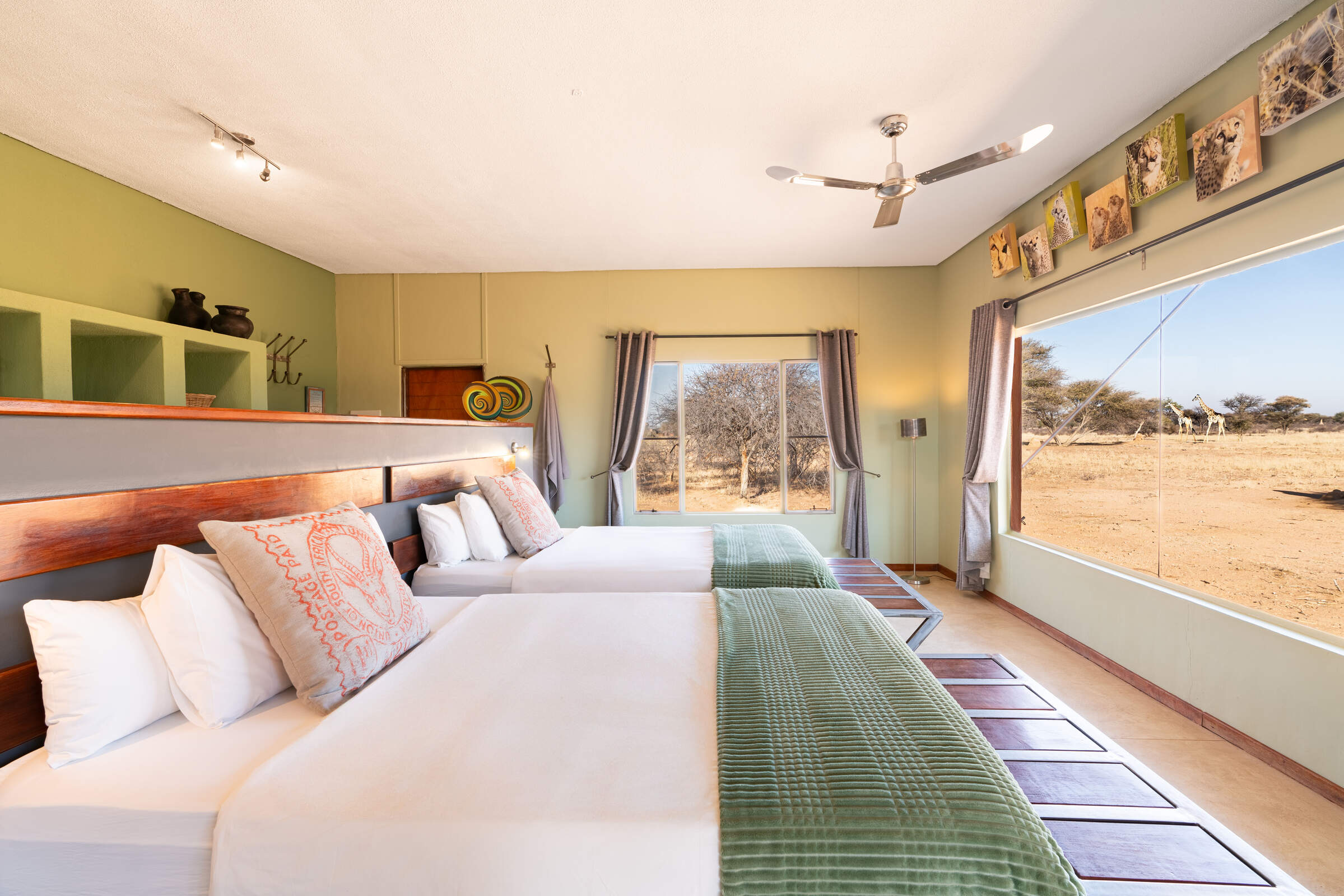
Okonjima Plains Camp
Plains Camp is the most economical option on the Okonjima Reserve, where big cats can often be seen at close quarters, with great photographic opportunities.
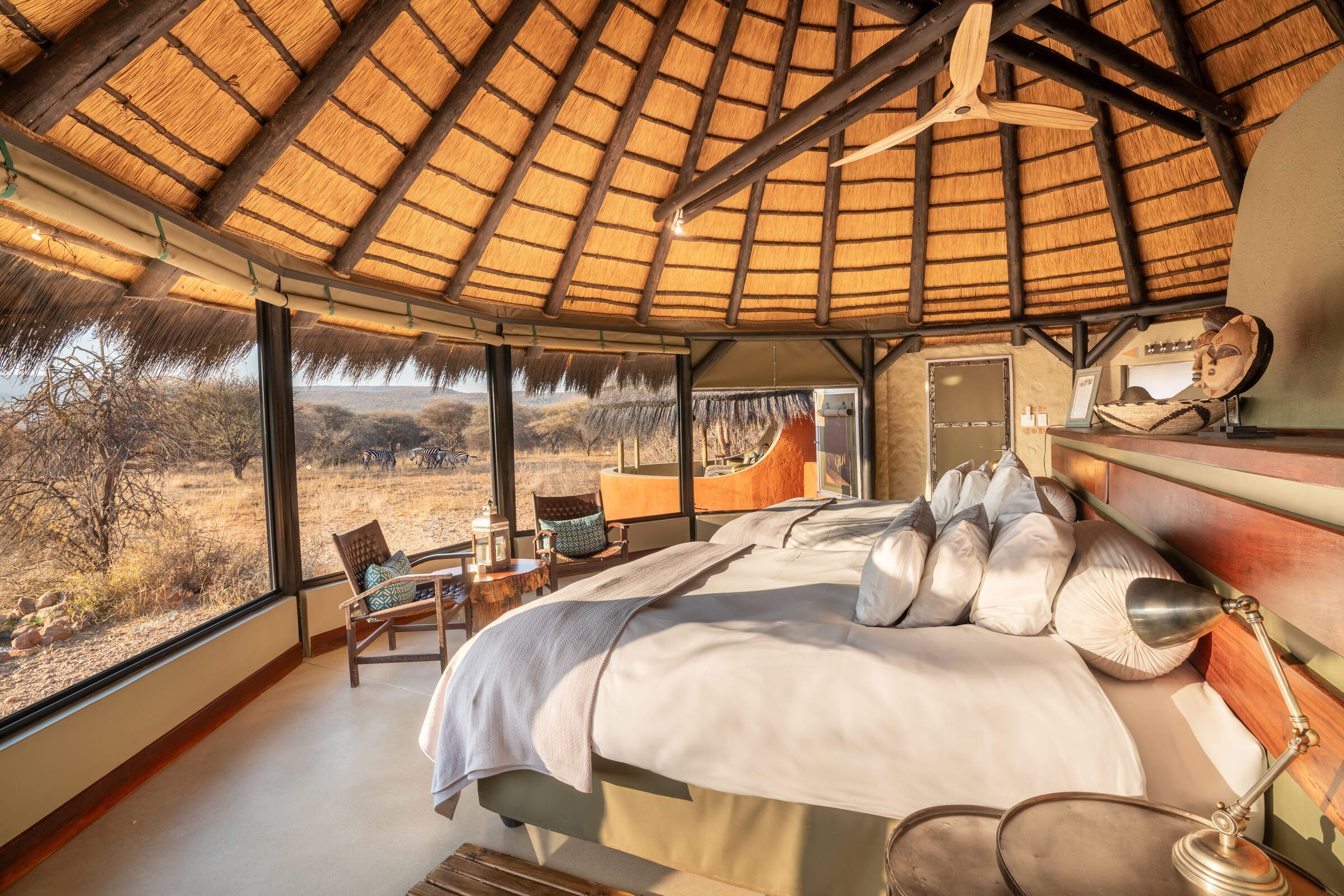
Okonjima Bush Camp
Roomy chalets, personal service and great food make Okonjima Bush Camp a comfortable base from which to explore the Okonjima Reserve.
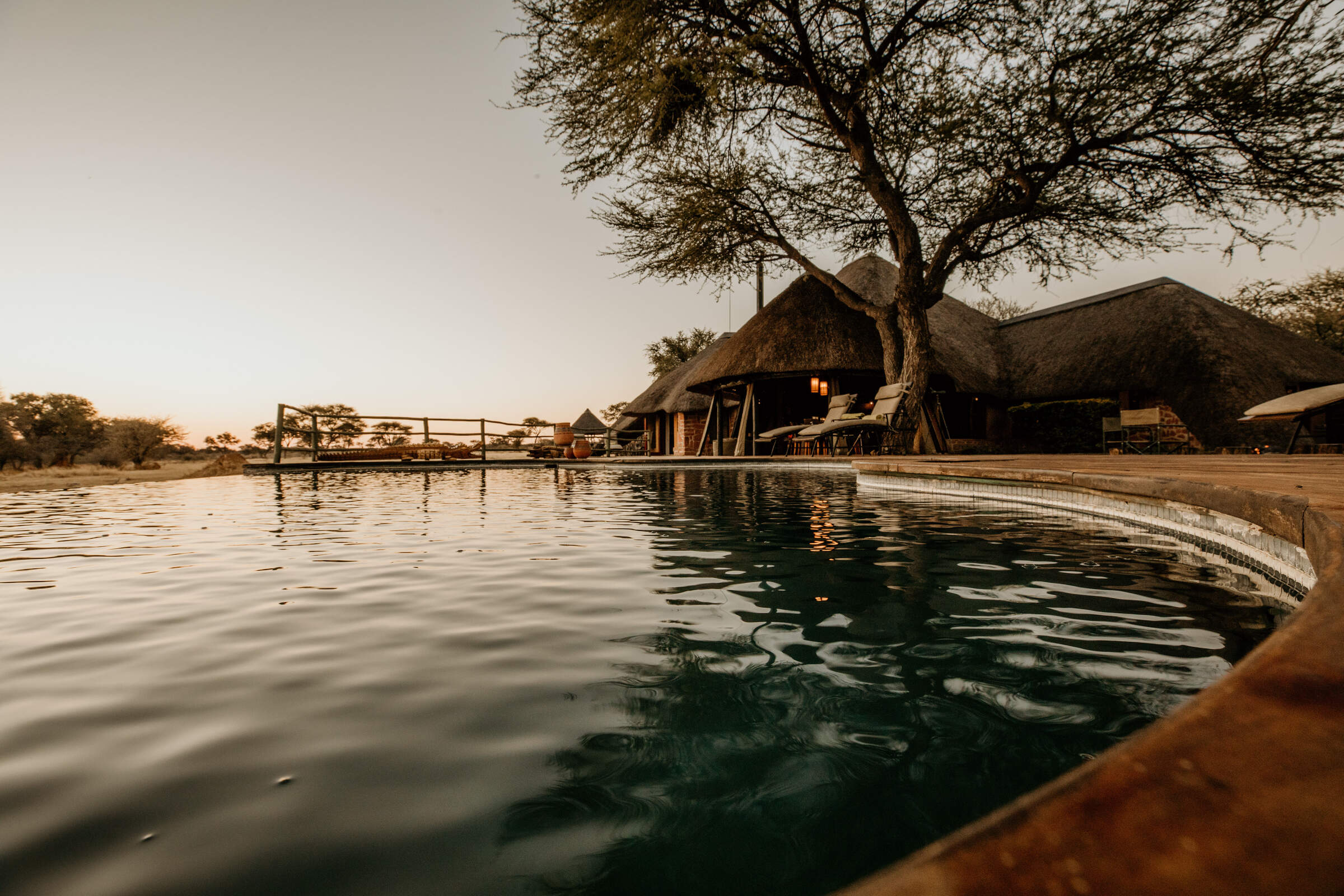
Okonjima Villa
Okonjima Villa is the most exclusive place to stay on Okonjima, offering luxury, privacy, flexibility and fantastic wildlife-watching opportunities.
When to go to Okonjima Nature Reserve
Our month by month guide: What it's like to visit Okonjima Bush Suite in Okonjima Nature Reserve
Jan
Feb
Mar
Apr
May
Jun
Jul
Aug
Sep
Oct
Nov
Dec
Okonjima Nature Reserve in January
Okonjima Nature Reserve experiences its rainy season in January. The reserve's landscape transforms, with lush vegetation sprouting across the 220km2 area. This greening attracts diverse wildlife, including the reserve's famous leopards and cheetahs.
The AfriCat Foundation's conservation efforts are in full swing, with researchers monitoring how the increased rainfall affects predator behaviour. Visitors can participate in tracking activities, though the thicker vegetation can make sightings more challenging. Guided bush walks provide insights into the reserve's flora, now in bloom. Night drives reveal nocturnal creatures taking advantage of the cooler evenings.
Birdwatchers will enjoy the numerous migrant species present during this time.
- Variable weather, occasional thunderstorms
- Wildlife dispersed, harder to spot
- Birdlife at its most spectacular
- Low tourist numbers, favourable rates
- AfriCat Foundation tours less crowded
Our view
This is not a great time to visit
Weather in January
Okonjima Nature Reserve in February
February at Okonjima Nature Reserve sees continued rainfall, maintaining the lush landscape.
The AfriCat Foundation's research projects are focussed on how predators adapt to the wet conditions. Visitors can join leopard tracking expeditions, though dense vegetation may make sightings more challenging. The reserve's waterholes become less crucial for wildlife, as water is more widely available. This dispersal of animals creates unique tracking opportunities for guests. Guided bush walks reveal a myriad of smaller creatures and insects thriving in the wet conditions.
The AfriCat Pangolin Research Project is particularly active, as these elusive creatures are more easily spotted in the softer soil. Birdwatching remains excellent, with many species in breeding plumage.
- Humid with some rain, localised storms
- Lush vegetation, bush feels alive
- Wildlife harder to see in Okonjima
- Excellent time for bird enthusiasts
- Low season rates at Okonjima lodges
Our view
This is not a great time to visit
Weather in February
Okonjima Nature Reserve in March
As rains begin to taper off at Okonjima Nature Reserve, wildlife viewing improves. The landscape remains verdant, providing ample food for herbivores and their predators.
The AfriCat Foundation's leopard and cheetah rehabilitation programs are busy, with researchers monitoring how these big cats adapt as the seasons change. Visitors can participate in tracking activities with higher chances of successful sightings.
Camps in Okonjima offer excellent bases for exploration, with guided bush walks revealing the intricate ecosystems of the reserve. Night drives provide opportunities to spot nocturnal animals, including honey badgers and porcupines.
The AfriCat Pangolin Research Project continues its vital work, offering guests unique insights into these rare creatures. As the landscape dries, animals begin to concentrate around permanent water sources, enhancing game viewing opportunities.
- Weather becoming drier as the month progresses
- Animals looking sleek after months of plenty
- Leopard tracking still challenging
- Migrant birds begin to leave
- Low visitor numbers, great lodge deals
Our view
A good time to visit, with pros & cons
Weather in March
Okonjima Nature Reserve in April
April marks the transition to the dry season at Okonjima Nature Reserve. Leopard and cheetah sightings become more frequent as vegetation thins and animals congregate around water sources. The reserve's waterholes become increasingly important, offering excellent game viewing opportunities throughout the day.
Guided bush walks reveal the reserve's diverse flora and fauna, with knowledgeable guides explaining the intricate relationships within the ecosystem. Night drives provide thrilling encounters with nocturnal predators.
The AfriCat Pangolin Research Project continues, though sightings become more challenging as the ground hardens. Birdwatching remains rewarding, with many species still in breeding plumage.
- Cooler nights, drier days at Okonjima
- Wildlife starting to congregate near water
- Improved visibility for leopard tracking
- Fresh, clean air ideal for photography
- Easter sees a slight increase in visitors
Our view
A good time to visit, with pros & cons
Weather in April
Okonjima Nature Reserve in May
May at Okonjima Nature Reserve sees the dry season in full swing. The AfriCat Foundation's tracking programs yield excellent results as wildlife concentrates around water sources. Leopard sightings are frequent. The reserve's waterholes become wildlife hotspots, offering excellent game viewing throughout the day.
The reserve's landscape takes on golden hues, creating stunning backdrops for photography. Guided bush walks offer intimate encounters with smaller creatures and detailed explanations of the reserve's ecology. Night drives reveal a different side of Okonjima, with opportunities to spot elusive nocturnal animals.
The AfriCat Pangolin Research Project faces challenges as these creatures become more elusive in the drier conditions. Birdwatching remains rewarding, with resident species easy to spot in the thinning vegetation.
- Lovely weather, warm days, cool nights
- Wildlife easier to spot around waterholes
- Excellent conditions for night drives
- AfriCat tours offer great sightings
- Shoulder season, moderate lodge rates
Our view
A very good time to visit
Weather in May
Okonjima Nature Reserve in June
June brings cooler temperatures to Okonjima Nature Reserve, ideal for outdoor activities. Leopard sightings and game viewing are excellent as animals congregate around diminishing water sources.
Guided bush walks reveal the reserve's winter adaptations, while night drives provide thrilling encounters with nocturnal wildlife.
Birdwatching focuses on resident species, with clear skies enhancing visibility. Photographers benefit from the crisp air and golden light of winter, capturing stunning images of Okonjima's diverse wildlife against the dry landscape.
- Clear days, cold nights at Okonjima
- Prime time for leopard and cheetah viewing
- Night drives reveal nocturnal wildlife
- Stargazing conditions are excellent
- Moderate rates, increasing bookings
Our view
A very good time to visit
Weather in June
Okonjima Nature Reserve in July
July at Okonjima Nature Reserve offers prime wildlife viewing conditions. The dry landscape concentrates animals around water sources. Leopard sightings are frequent, especially around the reserve's waterholes.
The Okonjima Plains Camp and Bush Camp provide comfortable bases for exploration, with heated pools offering respite from the cool air. Guided bush walks reveal the intricacies of the winter ecosystem, while night drives showcase the reserve's nocturnal inhabitants.
Birdwatching focuses on resident species, with raptors particularly visible against the clear skies. Photographers benefit from the excellent visibility and golden light, capturing stunning images of wildlife against the stark winter landscape.
- Dry days, cold nights, perfect for safaris
- Peak season for wildlife viewing
- Leopard tracking highly successful
- Night hide observations at their best
- High rates, lodges often fully booked
Our view
A very good time to visit
Weather in July
Okonjima Nature Reserve in August
August sees Okonjima Nature Reserve at its driest, offering unparalleled wildlife viewing opportunities. The reserve's waterholes become wildlife hotspots, offering spectacular game viewing throughout the day.
The AfriCat Foundation's conservation efforts yield frequent leopard and cheetah sightings as predators concentrate around waterholes. Guided bush walks reveal the resilience of the ecosystem in dry conditions, while night drives offer thrilling encounters with nocturnal creatures.
Birdwatching focuses on resident species and early migrants. Photographers benefit from dust-free air and golden light, capturing stunning images of Okonjima's diverse wildlife against the stark landscape.
- Ideal conditions for wildlife watching
- Leopards and cheetahs easily spotted
- Busy season, family rooms in high demand
- Night drives offer exceptional sightings
- Book Okonjima lodges well in advance
Our view
Fantastic: the very best time to visit
Weather in August
Okonjima Nature Reserve in September
September at Okonjima Nature Reserve offers excellent wildlife viewing as the dry season peaks. The landscape is at its sparsest, concentrating wildlife around remaining water sources. The reserve's waterholes are crucial gathering points, offering spectacular game viewing opportunities.
Birdwatching improves with the arrival of early migrants. Photographers benefit from clear skies and golden light, capturing stunning images of wildlife against the dramatic, dry landscape.
- Warming temperatures, still dry
- Excellent month for predator sightings
- AfriCat Foundation tours very popular
- Vegetation sparse, enhancing visibility
- High season rates, limited availability
Our view
Fantastic: the very best time to visit
Weather in September
Okonjima Nature Reserve in October
October brings the promise of change to Okonjima Nature Reserve. The AfriCat Foundation's researchers observe shifting animal behaviours as the first rains approach. Leopard sightings remain excellent, with predators taking advantage of prey concentrated around dwindling water sources. The reserve's waterholes remain crucial, offering spectacular game viewing. Guided bush walks reveal the first signs of the coming wet season.
Birdwatching improves dramatically with the arrival of numerous migrant species. Photographers capture stunning images of wildlife against a landscape poised for transformation.
- Hot and dry, desert-like conditions
- Peak time for wildlife viewing at Okonjima
- Leopard and cheetah sightings frequent
- Night drives reveal active nocturnal life
- Book well ahead, lodges often full
Our view
A very good time to visit
Weather in October
Okonjima Nature Reserve in November
November marks the beginning of the wet season at Okonjima Nature Reserve. Early rains bring new growth, dispersing wildlife across the reserve. Leopard tracking becomes more challenging but rewarding as these predators adapt to the changing environment. The AfriCat Pangolin Research Project sees a surge in activity as softer soils make these creatures easier to spot.
Birdwatching is excellent, with numerous migrant species arriving in breeding plumage. While game viewing at waterholes decreases, the lush landscape offers new photographic opportunities.
- Variable month, depending on rains
- New vegetation if rains have started
- Wildlife viewing still good, especially cats
- Birdlife increasing with migrant arrivals
- Shoulder season, good value at lodges
Our view
A good time to visit, with pros & cons
Weather in November
Okonjima Nature Reserve in December
December at Okonjima Nature Reserve sees the wet season in full swing. The landscape transforms, with lush vegetation sprouting across the reserve. Wildlife disperses, making tracking more challenging but rewarding. Guided bush walks reveal the reserve's dramatic transformation, while night drives showcase increased nocturnal activity. The AfriCat Pangolin Research Project benefits from softer soils, increasing the chances of sightings.
Birdwatching is at its peak, with numerous migrant species present. While traditional game viewing becomes more challenging, the verdant landscape offers unique photographic opportunities, capturing Okonjima's diverse ecosystems in their most vibrant state.
- Hot days, possible cooling showers
- Green landscapes if rains have come
- Excellent for birdwatching at Okonjima
- Leopards and cheetahs harder to spot
- Holiday season brings more visitors
Our view
This is not a great time to visit
Weather in December

Looking for inspiration on where to travel next?
Visit our trip chooser to explore your options and find inspiration for your perfect African adventure
Inspire me